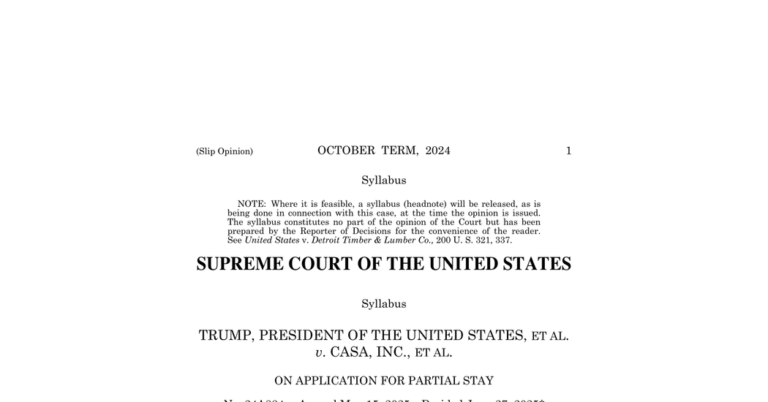28
TRUMP v. CASA, INC.
SOTOMAYOR, J., dissenting
early American bills of peace and the history of taxpayer suits. It further contradicts this Court’s practice, in cases like Lewis, Pierce, and Barnette, of affirming and granting universal injunctions even when narrower, plaintiff- focused injunctions would have offered complete relief to the parties. See supra, at 20-21. The majority instead fo- cuses on one case from 1897, in which this Court “permitted only a narro[w] decree between ‘the parties named as plain- tiff and defendants in the bill,”” ante, at 7 (quoting Scott, 165 U. S., at 117), over others, including from the same pe- riod, doing just the opposite. The majority offers no princi- pled basis to deem the question resolved by a single case from 1897 while cases just a few years later charted a dif- ferent course. Indeed, if the relevant inquiry turns on “founding-era practice,” then there is no reason why a case from 1897 should be dispositive. Ante, at 9, n. 7.
In the majority’s telling, Scott merely “illustrates that as late as 1897, this Court adhered to a party-specific view of relief.” Ante, at 7–8, n. 6. Nothing in Scott, however, dic- tates that equitable relief must always be party specific. To the contrary, just one year after Scott, the Court endorsed the opposite view: “Only a court of equity,” the Court ex- plained, “is competent to … determine, once for all and without a multiplicity of suits, matters that affect not simply individuals, but the interests of the entire commu- nity.” Smyth v. Ames, 169 U. S. 466, 518 (1898); see also id., at 517 (“[T]he circuit court of the United States, sitting in equity, can make a comprehensive decree covering the whole ground of controversy, and thus avoid the multiplic- ity of suits that would inevitably arise under the statute”).6
6 Regardless of the actual decree the Smyth court approved, see ante, at 7-8, n. 6, its analysis clearly reveals that the Court understood equity to permit broad relief intended to benefit parties and nonparties alike. That is why this Court later approved or granted universal injunctions
